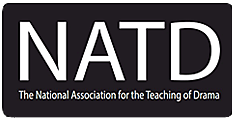Position Statement: Assessment Beyond The Pandemic
Assessment matters, when we assess what matters.
This document addresses two significant issues in education in England today: the cancelling of the examination series planned for the summer of 2021 and the wider issue of assessment per se. It is written from the perspective of teachers of Drama but the majority of its salient points are universal.
The COVID 19 pandemic has had a significant impact on all young people. In the teeth of the crisis in 2020 the UK Government took the decision to cancel examinations at A and GCSE level and use Centre Assessed Grades (CAGs) in order to issue results.
On the 6th January 2021 the Education Secretary stated in Parliament that
Although exams are the fairest way we have of assessing what a student knows, the impact of this pandemic now means that it is not possible to have these exams this year. I can confirm that GCSEs and A and AS Level exams will not go ahead this summer. This year we are going to put our trust in teachers rather than algorithms.
Our young people are living in a constant state of uncertainty: not knowing on what they are to be examined; not knowing how they are going to be assessed; not knowing if their families are going to be safe; not knowing if their parents are going to be in work.
Both sets of students have missed a minimum of sixteen weeks of face-to-face teaching.
Outbreaks of the virus within schools have led to a significant number of students across the country missing further teaching amounting to anything from a few days to a few weeks, even months.
Virtual teaching and learning have been patchy: reliant on the provision of IT both in the students’ homes and in the schools, the internet connection and available hardware, the IT skills of students and staff. Indeed, for many subjects and many learners, individualised, two-dimensional teaching is just not appropriate.
Large numbers of young people have become increasingly anxious about: their learning; their futures; their health; and the health of their loved ones. Many are unable to focus; large numbers are turning to self-harming behaviours; and some are considering taking their own lives.
Despite the best of efforts of themselves and of their teachers and schools, the atmosphere is not conducive to learning.
Under these circumstances it is unreasonable to expect plain sailing when teachers, suddenly to be ‘trusted’ again, turn their hands to assessing young people who have twelve years of education at stake and many of whom feel as though justice won’t be done. There will be a minority of students who will be able to cope; some will even thrive under them. However, the majority will suffer will become increasingly dispirited, demotivated and depressed. Teacher assessment will be moderated, results will be adjusted by external bodies (e.g. exam boards) and there are few, if any, teachers/educators who have faith that this will achieve parity. Any and all adjustments will be made within the terms of reference, the philosophy that underpins the deeply uneven playing field that is the examination system. In short a process that will leave a scar on the academic lives of hundreds of thousands of young people.
The alternative is obvious.
All schools have experienced members of staff who will have worked through other examination systems based on a significantly greater trust of teacher judgements. Indeed, there were courses that were one hundred per cent teacher-assessed. Teacher understanding and application of standardising and moderating became highly sophisticated and reliable.
For the current cohort of students, following the emergency model of 2020, Centre Assessed Grades should be used to assess their final grades. Given that teaching staff have remained active throughout the lockdowns and can anticipate remaining so over the coming months, internal and external moderation can be layered on top of this in order to re-assure the wider public that the process is fair.
This would have the following benefits:
Placing the professionals who know the students the best at the centre of the examination process;
Re-assuring students and parents that they are being treated fairly;
Enabling teachers and students to focus on teaching and learning that which matters rather than surviving in a constant, unhealthy state of exam-ready vigilance;
Returning teachers and schools to their role as enablers and nurturers.
Developing this argument further, the logical next step is to shift away from the business of examinations and back to education. The cancellation of last summer’s exams and the apparent reliance on teacher assessment has prompted a widespread questioning and re-evaluation of the need for and the management of GCSEs.
Continuous teacher assessment is would restore trust and efficacy within the education system. It is a moment-by-moment process that enables the teacher to identify what the learner needs to do next. It is a highly sophisticated process that is evidence-based. It allows the young person, her teacher and all those who are invested in her future to know what she has achieved.
For teachers of Drama, this means it should be:
· formative, not summative;
· in the interests of the child – child-centred;
· in the hands of the teacher;
· continuous;
· enabling the teacher to improve her teaching;
· enabling the child to, for example,
build resilience,
demonstrate empathy, sensitivity to others,
develop generosity of spirit;
· validating the artistic expression of understanding of the above.
To this end we call for the abolition of the GCSE examination model as it stands and the establishment of a humanising model of teacher assessment from the summer of 2022.
